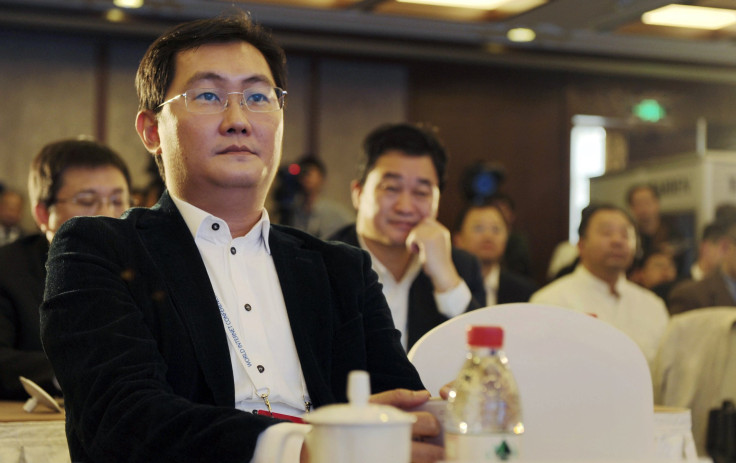World Internet Conference Update: Chinese Officials And Foreign Tech Leaders Meet To Discuss Cyber-Busines

LinkedIn co-founder and Chairman Reid Hoffman is never short of ideas on how to expand his business, but when asked at China’s first World Internet Conference this week what is his biggest challenge in breaking into the biggest, but also one of the most censored, markets, he ducked a straight answer: “We have to figure out the right fit for China, which is one of the reasons we’ve spent a lot of time here, a lot of energy,” he said, according to Bloomberg. “That cultural fit is the key challenge we have.”
Meeting that challenge seemed to be the goal of all the foreign tech bigwigs who attended the conference held just outside Shanghai, where they were joined by China’s cyber authorities and leading tech innovators. LinkedIn has had success in China by bowing to the government's rules on content, and experts say other companies may try to do likewise. Hoffman's cautious approach was shared by most other foreign executives there, who included representatives from Apple, Facebook, IBM, Microsoft and Amazon, according to Reuters.
The conference was organized by China’s State Internet Information Office with the stated goal of discussing the “current issues in the cyberspace, including cyber-security, online anti-terrorism efforts, mobile network and cross-border e-commerce,” according to CRI English.
There are more than 640 million Internet users in China, the most of any country in the world. Naturally, foreign tech firms have been trying to tap into China for years with varied success, but the pervasive Internet censorship system, often called the “Great Firewall” by critics, stands like a roadblock on the information superhighway that is the lifeblood of social media like Facebook, Twitter and LinkedIn.
The full breadth of that challenge was on display at the World Internet Conference. Chinese officials were more willing to talk about their government’s policies than any of the foreign business leaders there, but only in the context of security.
“The Internet is a double-edged sword,” said Ma Kai, a state council vice premier. “Well used, its Alibaba’s treasure. Poorly used, it’s Pandora’s box.”
Lu Wei, who heads the State Internet Information Office, said during a press conference leading up to the summit, “We welcome anyone to come to China. We cannot change others, but we have the right to choose our friends,” according to Global Times.
Lu said the Chinese government wouldn’t allow in any companies that sought to exploit the country and harm the public. He added that the Internet should be “free and open, with rules to follow and always following the rule of law.”
During the conference, access to normally censored material like Facebook and YouTube seemed to turn on and off periodically, making it impossible for attendees to ignore the reality of censorship around them. Whether by design or by accident, the lack of dependable Internet access didn’t exactly give off the feeling of openness.
Turning off the Internet in China isn’t quite as easy as flipping a switch, but it might as well be. Chinese authorities have a toolshed of censorship and surveillance capabilities at their disposal. They can block or unblock individual cities, neighborhoods, buildings, said Carolina Rossi, vice president of international policy and strategy at Public Knowledge, a digital rights advocacy organization.
Access to the wider Web at the conference was available using virtual private networks, or VPNs, which bypasses censors by hiding where one's computer is connecting to the Internet. It’s the same method many university and high school students in the U.S. use to get past their school’s content blockers.
It’s also the primary method for tech-savvy Chinese to work around the Great Firewall. It seems curious that China would bring attention to VPNs at the conference, but the use of VPNs is no big secret, nor is it necessarily something Beijing is concerned about. Government censors and Chinese dissidents alike pick their battles.
“The authorities really don't like it when people encourage others to organize and meet up,” said Charlie Smith, the man behind Greatfire.org, which tracks and documents Chinese web censorship. “So if you write ‘Free Twitter’ on Weibo, it's highly unlikely anything will happen to you. However, if you write ‘let’s get a hundred people together in Sanlitun [center of Beijing nightlife] to protest the blocking of Twitter,’ well, you might get a knock on your door. ... I think Chinese are well aware of those kinds of boundaries now and very rarely do you see public protests of this nature. Chinese will get into the streets when there is something that is over-burdening -- like a chemical factory spill -- but I have not seen many open protests about Internet freedom.”
Attendees got a taste of some idiosyncrasies of Chinese media as well. One journalist tweeted a photo of conference leaders putting on a fake press conference.
Oh my god. They are recording a fake press conference at the China World Internet Conference! pic.twitter.com/vqzEIT7kr6
- Paul Carsten (@PaulCarsten) November 19, 2014Asked to move forward from empty seat area so they can film me. Fake press conferences are incredible. Recording questions asked to nobody
- Paul Carsten (@PaulCarsten) November 19, 2014As bad as it was at times, open access at conference events became a novel opportunity to send emails and check Facebook for many attendees used to being cut off in country.
And a novelty it will remain. All indications are that China’s first Internet conference isn’t a sign that it will suddenly tear down the Great Firewall, but foreign tech executives may walk away with some new ideas on how, if at all possible, to break into China.
"I doubt people are making their way to the conference venue to get unfettered Internet access," Smith said. "I bet some of the volunteers are enjoying Instagram again, however.”
© Copyright IBTimes 2024. All rights reserved.






















